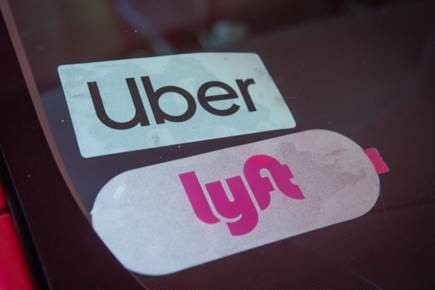In the elections held last Tuesday, an important item was on the ballot in California – whether or not to classify ridesharing drivers, like those who work for Uber and Lyft, as employees. The measure, known as Proposition 22, permits the companies to continue to designate their drivers as independent contractors. After the votes were counted, the measure passed, resulting in drivers retaining their status as independent contractors.
The issue of the gig economy came to a head in California because it is a major technology hub in the United States. Uber and Lyft are both headquartered in San Francisco, as are popular delivery services DoorDash and Instacart. As such, the tech companies that utilize independent contractors have been successfully implemented in California and the gig economy affects a large number of California workers. In 2019, the California state legislature passed a law that narrowly tailored the definition of an independent contract workers in such a way that would require many tech companies to designate their gig workers as employees. Lawyers for the tech companies worked strongly to oppose the law, and created an oppositional ballot measure which resulted in Proposition 22.
The vote comes as a major about-face from a recent decision out of the California courts. Just two weeks ago, an appellate court in California held that Uber and Lyft had to classify their drivers as employees, making them eligible for certain workplace protections like paid sick leave, overtime pay, and health insurance. While the court was intending to mandate protections to workers, the ridesharing companies fought back, indicating that many drivers enjoyed working to accommodate their own varying needs as independent contractors. Furthermore, the companies argued that if they were made to hire all drivers as employees, they would not be able to retain the size of their current workforce, leading to a loss of income for current drivers during an already stressful financial crisis as a result of the pandemic.
Companies that rely heavily on gig workers, like the ones mentioned earlier in the article, spent an unprecedented amount of money in California to promote the passage of Proposition 22 – almost $200 million. 58% of California voters preferred the measure. Proposition 22 provides drivers with a minimum amount of earnings as well as compensation if they are injured while driving.
While some individuals are happy with the outcome, others feel that classifying workers as independent contractors allows these major tech companies to take advantage of drivers.
The gig economy benefits workers and independent contractors alike in various ways. Businesses do not have to pay independent contractors benefits or provide work equipment, saving significant money that would be spent on an employee. Independent contractors allow businesses to grow quickly with the market; costs remain low but as business peaks as they take on as many workers as needed. Independent contractors like the flexibility of working when it suits their needs and the independence of completing work without close supervision.
Despite the positives for businesses and independent contractors alike, the gig economy does have some downsides. Independent contractors, even those that are working full-time, may miss out on benefits that employees may receive. Employees have little to no interactions with colleagues that would create investment in the business. Furthermore, if the service they provide becomes less popular, while employees may be available to work, they will not receive any requests by which they can earn money. As for businesses, workers may be less reliable and less invested than full-time employees because of the flexibility and differing expectations that often come with the independent contractor status, such as those that work for many tech companies.
It will be interesting to see how this ballot initiative plays out in California, and how other states will consider reclassifying independent contractors, such as those who work for ridesharing companies.

